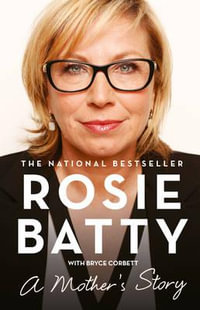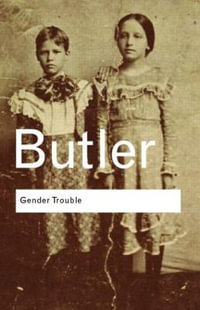The shocking truth about how state governments and their private industry partners are profiting from the social programs meant to support disadvantaged Americans
Government aid doesn't always go where it's supposed to. Foster care agencies team up with companies to take disability and survivor benefits from abused and neglected children. States and their revenue consultants use illusory schemes to siphon Medicaid funds intended for children and the poor into general state coffers. Child support payments for foster children and families on public assistance are converted into government revenue. And the poverty industry keeps expanding, leaving us with nursing homes and juvenile detention centers that sedate residents to reduce costs and maximize profit, local governments buying nursing homes to take the facilities' federal aid while the elderly languish with poor care, and counties hiring companies to mine the poor for additional funds in modern day debtor's prisons.
In The Poverty Industry, Daniel L. Hatcher shows us how state governments and their private industry partners are profiting from the social safety net, turning America's most vulnerable populations into sources of revenue. The poverty industry is stealing billions in federal aid and other funds from impoverished families, abused and neglected children, and the disabled and elderly poor. As policy experts across the political spectrum debate how to best structure government assistance programs, a massive siphoning of the safety net is occurring behind the scenes. In the face of these abuses of power, Hatcher offers a road map for reforms to realign the practices of human service agencies with their intended purpose and to prevent the misuse of public taxpayer dollars.
With more Americans than ever before seeking unemployment benefits, it is essential to remedy the nefarious practices that will impede them from receiving the full government support they are due. The Poverty Industry shows us the path to rectify this systemic inequality to ensure that government aid truly gets to those in need.
Industry Reviews
Hatcher exposes an urgent paradox at the heart of American governance: why, and how, are states and localities teaming up with corporations to squeeze profits from societys poorest? The Poverty Industry breaks fresh ground. Every American who cares about the intersection of private profits and public justice should read this book, and wrestle with its arguments. Hatcher marshals years of legal experience and research towards fulfilling the muckrakers calling: 'to comfort the afflicted, and afflict the comfortable.' But he also goes a step further. In The Poverty Industry, he combines a practitioners depth with a journalists flair for storytelling, to generate the first complete account of a little-known phenomenon that should be of interest to every reader with a conscience. -- Sarah Stillman, staff writer for The New Yorker
Everyone today is skeptical of charitable organizations that spend too little of their money on charity. After reading this book, Americans are sure to become just as skeptical when state and local governments spend federal tax dollars. Hatchers tour-de-force spells out how federal government spending on services for the poor are being wasted. . . . No one who reads this book will ever feel the same about fiscal federalism. . . . Hatcher shows that a shocking amount of money is going to profit private businesses. Even worse, these businesses are teaching state and local governments how to scam the feds by taking money for one purpose and misusing it to help fill a hole in the state budget outside of the purposes for which the money is being given. An extremely important book. -- Martin Guggenheim, Fiorello LaGuardia Professor of Clinical Law, New York University
In the tradition of great muckraking, Hatcher has exposed how states and localities have misdirected and misused public funds envisioned to benefit the most vulnerable among us. . . . Should be required reading for lawmakers and public officials, to remind them of their legal and moral responsibilities and to inspire them to stop these disturbing practices and direct these crucial resources to their rightful recipients. -- Jane M. Spinak, Edward Ross Aranow Clinical Professor of Law, Columbia University
[An] important book...Hatcher has done a great public service by shining a light on these massive distortions. * Stanford Social Innovation Review *
In this meticulously researched book Hatcher, who has represented vulnerable people in court for years, including children in foster care, lifts the lid on a system that rather than helping the needy, systematically turns them into 'a source of revenue'. * The Guardian,Mary O'Hara *
Daniel Hatcher meticulously explains the impact of deregulated privatisation on America's already residual care services. * Times Higher Education *
Hatcher provides beautiful examples of unintended consequences of government policies: states rip off the federal government because the federal government has unwittingly incentivized the states to do exactly that. * Choice *
A law professor at the University of Baltimore who has represented Maryland victims of such schemes, Hatcher presents a distressing picture of how states routinely defraud taxpayers of millions of federal dollars. * Boston Review *
Hatcher throws light on what can be hidden processes in human services budgeting, contracting, and implementation. The Poverty Industry walks through the evolution of legal doctrine regarding rights of vulnerable persons...The narrative provides compelling evidence that scholars, policymakers, and advocates should take a closer look at the political and business relationships shaping contracting decisions involving for-profit firms. * Political Science Quarterly *
"Poverty is here painted as an industry that, like the defense industry, has an iron triangle. As explored by Hatcher, it depicts revenue maximization services and contingency fees that decrease the funds from the federal government that go to helping children and the poor. * Library Journal *
The Poverty Industry exposes the venality of a startling number of public servants and private contractors who misdirect and misuse public funds intended to benefit those most in need. * Jewish Currents *

























